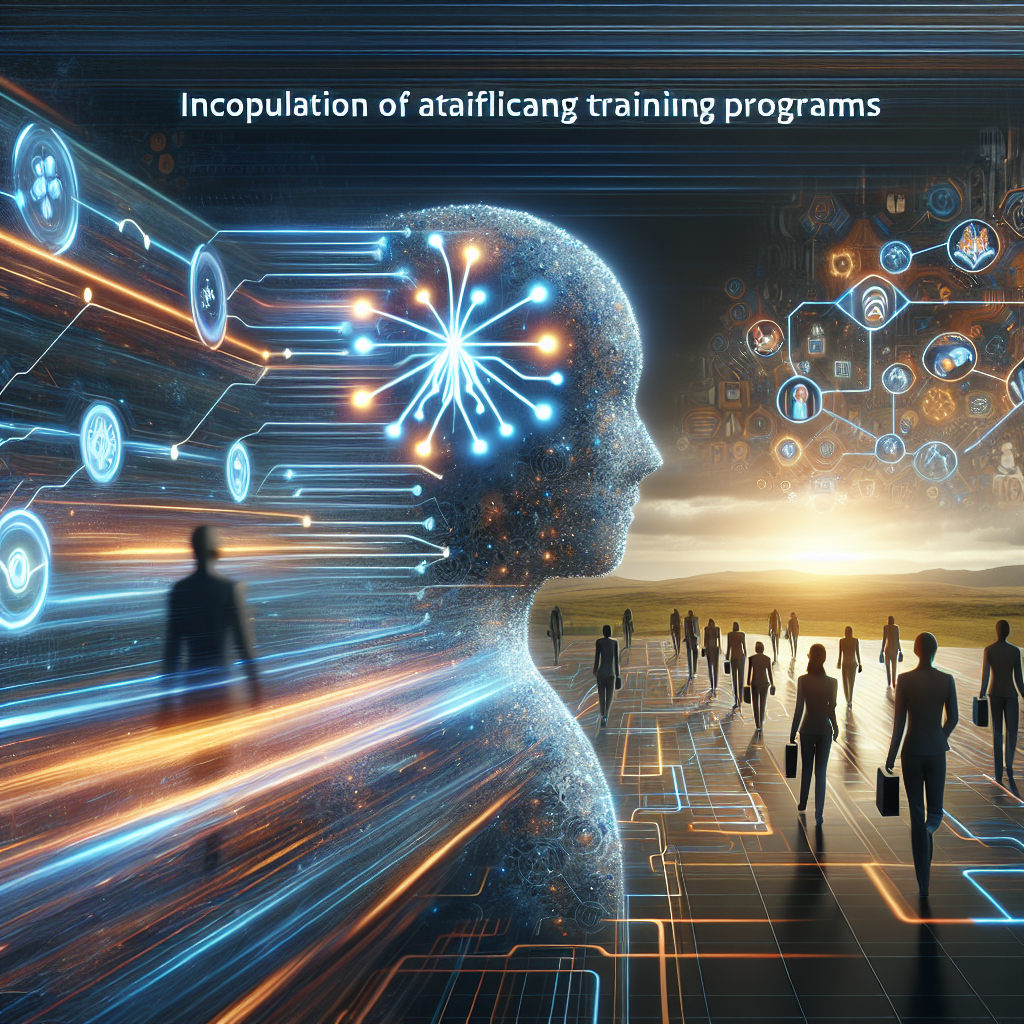In today’s rapidly evolving technological landscape, organizations are increasingly turning to artificial intelligence (AI) to bolster their training programs. AI’s ability to analyze vast amounts of data and generate actionable insights makes it an invaluable tool for enhancing user training initiatives. This article explores the multifaceted role of AI in training programs, highlighting its benefits, design strategies, personalization capabilities, and the future trends that promise to revolutionize the learning experience.
Understanding the Role of AI in User Training Programs
AI plays a transformative role in user training programs by automating administrative tasks, delivering personalized learning experiences, and providing real-time analytics. Through machine learning algorithms, AI can analyze user performance data to identify knowledge gaps and recommend targeted content. Additionally, AI-driven chatbots offer immediate support, answering queries and guiding users through complex topics. By leveraging AI, training programs can become more adaptive, efficient, and responsive to individual learner needs.
Key Benefits of Integrating AI into Training Initiatives
Integrating AI into training initiatives offers several key benefits, including enhanced engagement, improved efficiency, and personalized learning paths. AI can create immersive and interactive training environments through virtual reality (VR) and augmented reality (AR), making learning more engaging. It also automates repetitive tasks such as grading and attendance tracking, allowing trainers to focus on more strategic activities. Furthermore, AI’s ability to tailor content to individual learning styles and paces ensures that each user receives a customized training experience, maximizing the effectiveness of the program.
Designing Effective AI-Driven Training Modules
Designing effective AI-driven training modules involves a strategic approach that includes content curation, user experience design, and continuous feedback loops. Content should be modular and adaptable, allowing AI systems to reconfigure it based on user performance and preferences. User interfaces must be intuitive, ensuring that learners can easily navigate through the training material. Additionally, incorporating real-time feedback mechanisms enables continuous improvement of the training modules, as AI algorithms can analyze user interactions and suggest enhancements.
Personalization: Tailoring Training with AI Algorithms
Personalization is one of the most significant advantages of AI in training programs. AI algorithms can analyze individual learner data, such as previous performance, learning speed, and preferences, to create customized learning paths. This tailored approach ensures that users receive content that is relevant to their current skill level and learning objectives. By adapting the difficulty and pacing of the material, AI helps maintain learner engagement and motivation, ultimately leading to better retention and mastery of the subject matter.
Evaluating the Impact of AI on Learning Outcomes
Evaluating the impact of AI on learning outcomes requires a comprehensive assessment framework that includes both qualitative and quantitative metrics. Key performance indicators (KPIs) such as completion rates, assessment scores, and user satisfaction surveys provide valuable insights into the effectiveness of AI-driven training programs. Additionally, advanced analytics can track long-term retention and application of knowledge in real-world scenarios. By continuously monitoring and analyzing these metrics, organizations can refine their training strategies to ensure optimal learning outcomes.
Future Trends in AI-Enhanced Training Programs
The future of AI-enhanced training programs is poised to see significant advancements, driven by emerging technologies and evolving user needs. Adaptive learning platforms that leverage AI to provide real-time content adjustments will become more prevalent. The integration of natural language processing (NLP) will enhance the capabilities of AI-driven chatbots, making them more intuitive and responsive. Furthermore, the use of blockchain technology for secure and transparent credentialing will add a new layer of trust and verification to training programs. As these trends continue to develop, AI will play an increasingly central role in shaping the future of user training.
AI has already begun to reshape the landscape of user training programs, offering unprecedented opportunities for personalization, efficiency, and engagement. As organizations continue to explore and integrate AI technologies, the potential for more effective and impactful training initiatives will only grow. By understanding the role of AI, leveraging its benefits, and staying attuned to future trends, organizations can create dynamic training environments that meet the evolving needs of their users.


